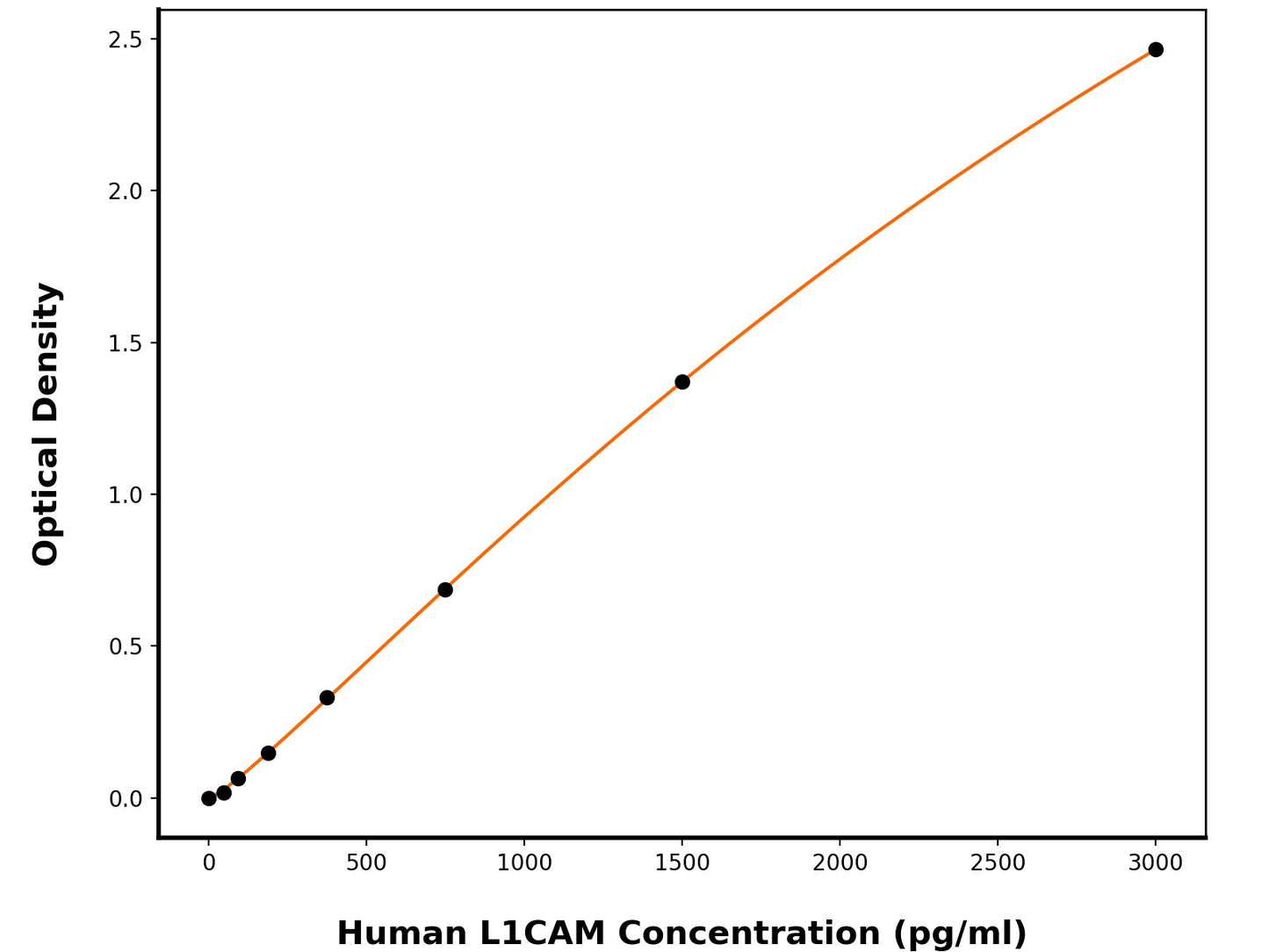1
/
of
1
Human Neural Cell Adhesion Molecule L1 (L1CAM) ELISA Kit
Human Neural Cell Adhesion Molecule L1 (L1CAM) ELISA Kit
This ELISA kit is designed to detect Human Neural Cell Adhesion Molecule L1 (Human L1CAM). The assay plate has been pre-coated with mouse anti-Human L1CAM monoclonal antibody. When the sample containing L1CAM is added to the plate, it binds to the antibodies coated on the wells. Then, a horseradish peroxidase conjugated mouse anti-Human L1CAM Antibody is added to the wells and binds to L1CAM in the sample. After washing the wells, substrate solutions are added, and the color intensity is directly proportional to the amount of Human L1CAM present. The reaction is stopped by adding an acidic stop solution, and the absorbance is measured at 450 nm.
Catalog No:
BPE028
Regular price
$754.00 USD
Regular price
$580.00 USD
Sale price
$754.00 USD
Unit price
/
per
2 weeks
Couldn't load pickup availability
Product Details
Species Reactivity
Human
Sensitivity
8.67 pg/mL
Detection Range
46.88-3000 pg/mL
Sample Type
Serum, plasma, cell culture supernates
Incubation(s)
3.5 hour(s)
Research Areas
Neuroscience, Signal Transduction
Background
L1 cell adhesion molecule (L1CAM), also designated as CD171, is a cell adhesion receptor of the immunoglobulin superfamily, known for its roles in nerve cell function. While originally believed to be present only in brain cells, in recent years L1-CAM has been detected in other tissues, and a variety of cancer cells, including some common types of human cancer. L1CAM interacts with a variety of ligands including axonin-1, CD9, neurocan, and integrins, and it has been revealed that the RGD motif in the sixth Ig domain of L1CAM is a binding site for integrins, thus important for nuclear signaling. Disruption of L1CAM function causes three X-linked neurological syndromes, i.e. hydrocephalus, MASA syndrome (mental retardation, aphasia, shuffling gait, and adducted thumbs), and spastic paraplegia syndrome. Overexpression of L1CAM in normal and cancer cells increased motility, enhanced growth rate, and promoted cell transformation and tumorigenicity. Recent work has identified L1CAM (CD171) as a novel marker for human carcinoma progression, and a candidate for anti-cancer therapy.
Shipping Condition
Shipped on cold gel packs.
Storage Condition and Shelf Life
This product can be stored at 2-8C.
Analyte
Neural cell adhesion molecule L1
Regulatory Status
For Research Use Only

